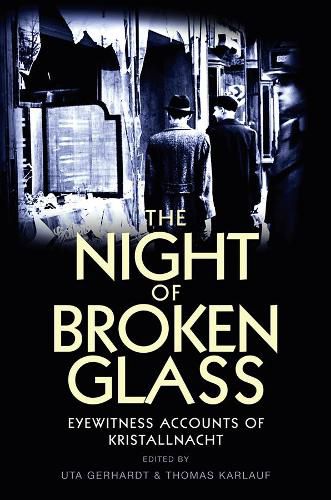Readings Newsletter
Become a Readings Member to make your shopping experience even easier.
Sign in or sign up for free!
You’re not far away from qualifying for FREE standard shipping within Australia
You’ve qualified for FREE standard shipping within Australia
The cart is loading…






November 9th 1938 is widely seen as a violent turning point in Nazi Germany’s assault on the Jews. An estimated 400 Jews lost their lives in the anti-Semitic pogrom and more than 30,000 were imprisoned or sent to concentration camps, where many were brutally mistreated. Thousands more fled their homelands in Germany and Austria, shocked by what they had seen, heard and experienced. What they took with them was not only the pain of saying farewell but also the memory of terrible scenes: attacks by mobs of drunken Nazis, public humiliations, burning synagogues, inhuman conditions in overcrowded prison cells and concentration camp barracks. The reactions of neighbours and passersby to these barbarities ranged from sympathy and aid to scorn, mockery, and abuse.
In 1939 the Harvard sociologist Edward Hartshorne gathered eyewitness accounts of the Kristallnacht from hundreds of Jews who had fled, but Hartshorne joined the Secret Service shortly afterwards and the accounts he gathered were forgotten - until now. These eyewitness testimonies - published here for the first time with a Foreword by Saul Friedlander, the Pulitzer Prize historian and Holocaust survivor - paint a harrowing picture of everyday violence in one of Europe’s darkest moments.
This unique and disturbing document will be of great interest to anyone interested in modern history, Nazi Germany and the historical experience of the Jews.
$9.00 standard shipping within Australia
FREE standard shipping within Australia for orders over $100.00
Express & International shipping calculated at checkout
November 9th 1938 is widely seen as a violent turning point in Nazi Germany’s assault on the Jews. An estimated 400 Jews lost their lives in the anti-Semitic pogrom and more than 30,000 were imprisoned or sent to concentration camps, where many were brutally mistreated. Thousands more fled their homelands in Germany and Austria, shocked by what they had seen, heard and experienced. What they took with them was not only the pain of saying farewell but also the memory of terrible scenes: attacks by mobs of drunken Nazis, public humiliations, burning synagogues, inhuman conditions in overcrowded prison cells and concentration camp barracks. The reactions of neighbours and passersby to these barbarities ranged from sympathy and aid to scorn, mockery, and abuse.
In 1939 the Harvard sociologist Edward Hartshorne gathered eyewitness accounts of the Kristallnacht from hundreds of Jews who had fled, but Hartshorne joined the Secret Service shortly afterwards and the accounts he gathered were forgotten - until now. These eyewitness testimonies - published here for the first time with a Foreword by Saul Friedlander, the Pulitzer Prize historian and Holocaust survivor - paint a harrowing picture of everyday violence in one of Europe’s darkest moments.
This unique and disturbing document will be of great interest to anyone interested in modern history, Nazi Germany and the historical experience of the Jews.